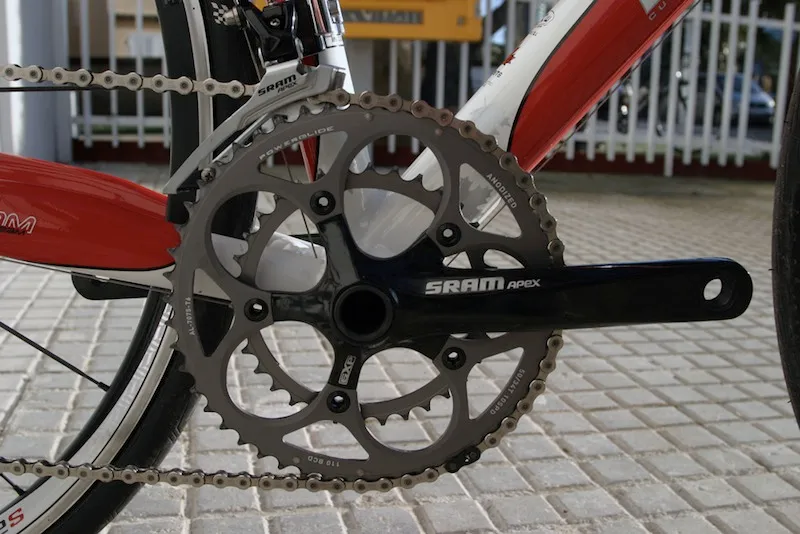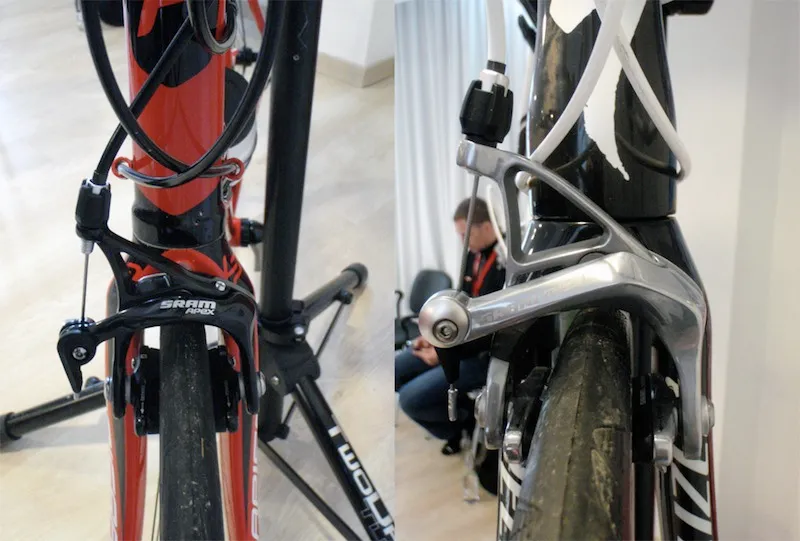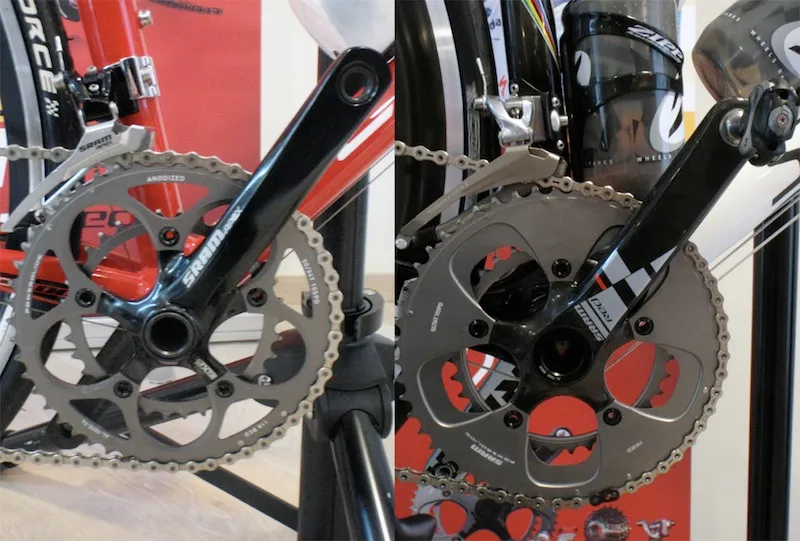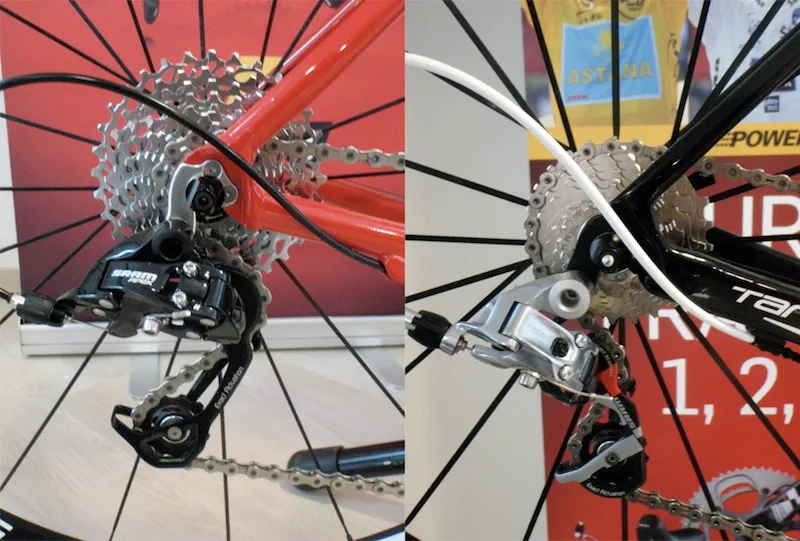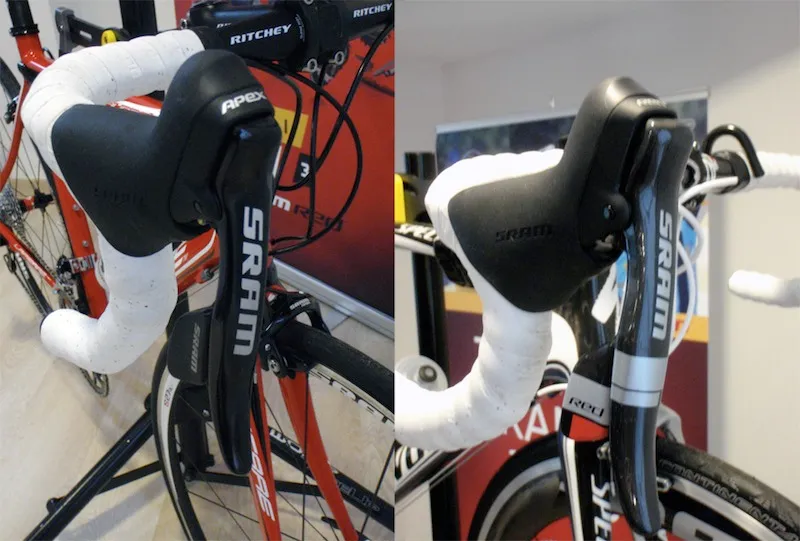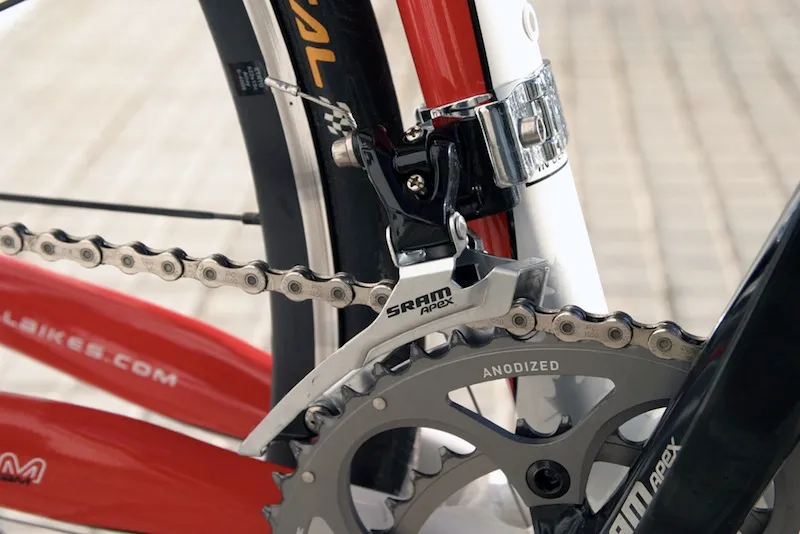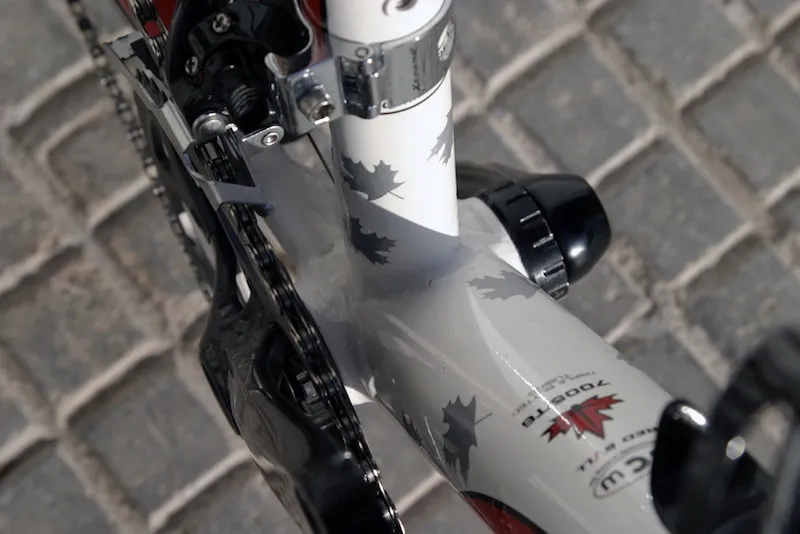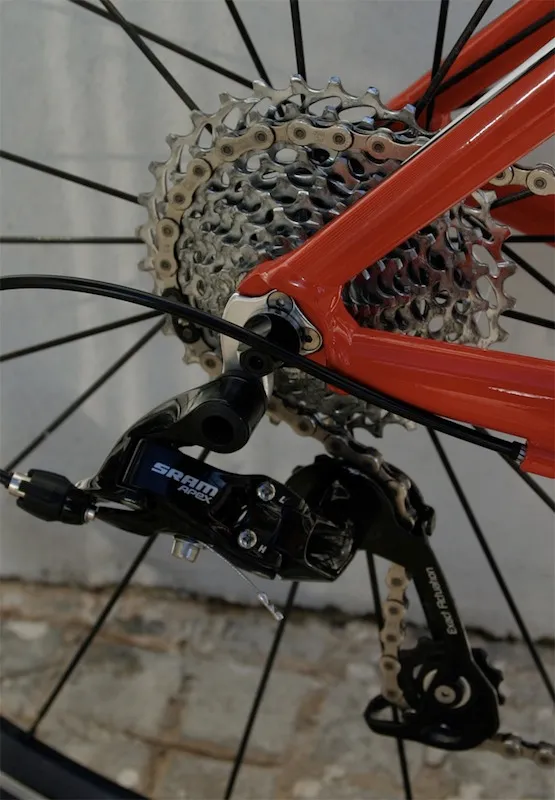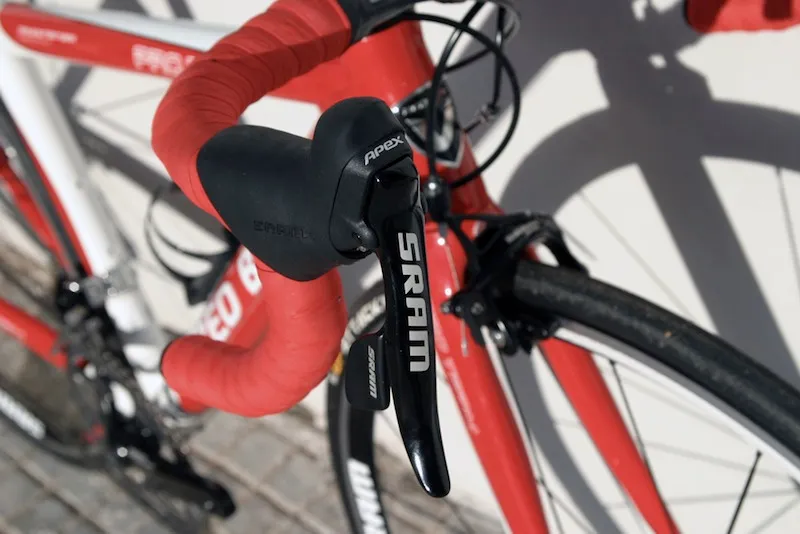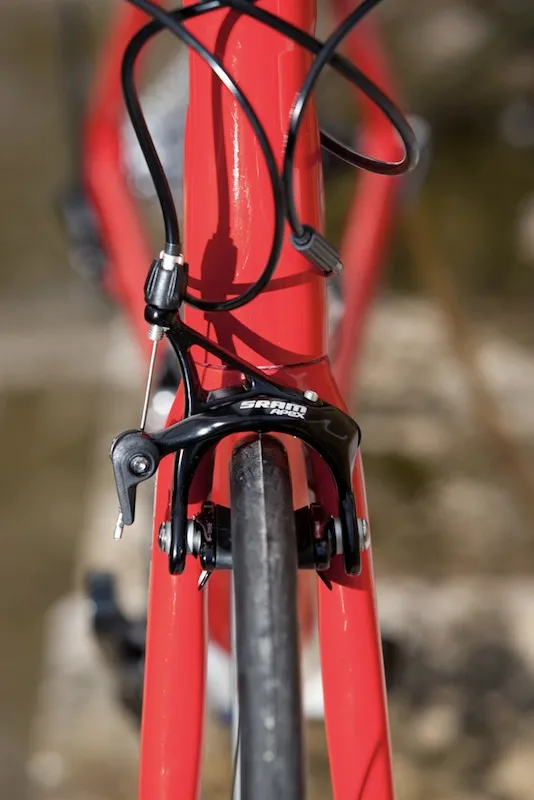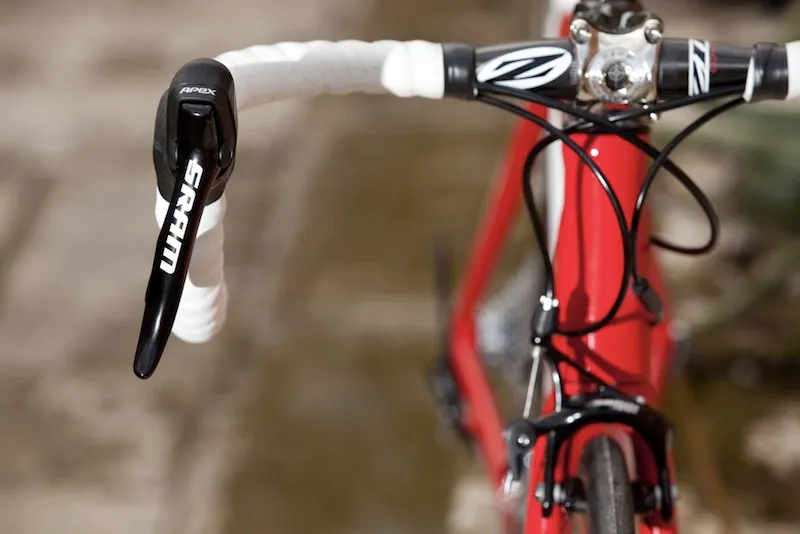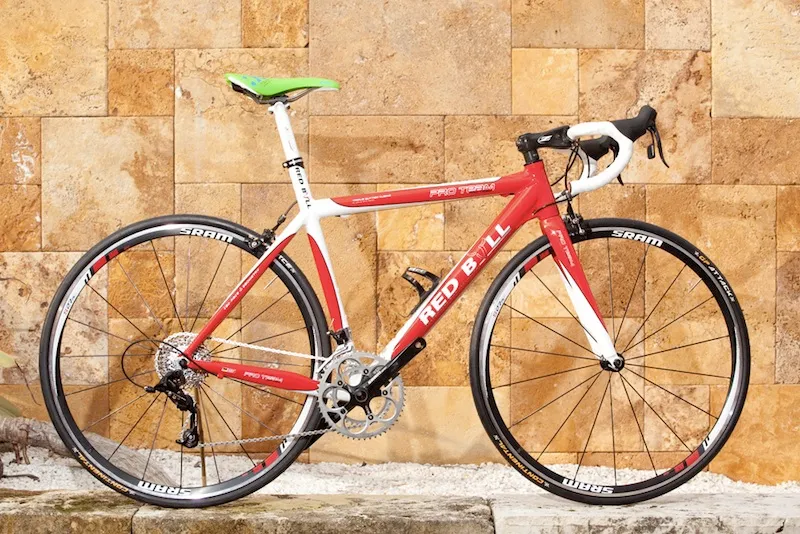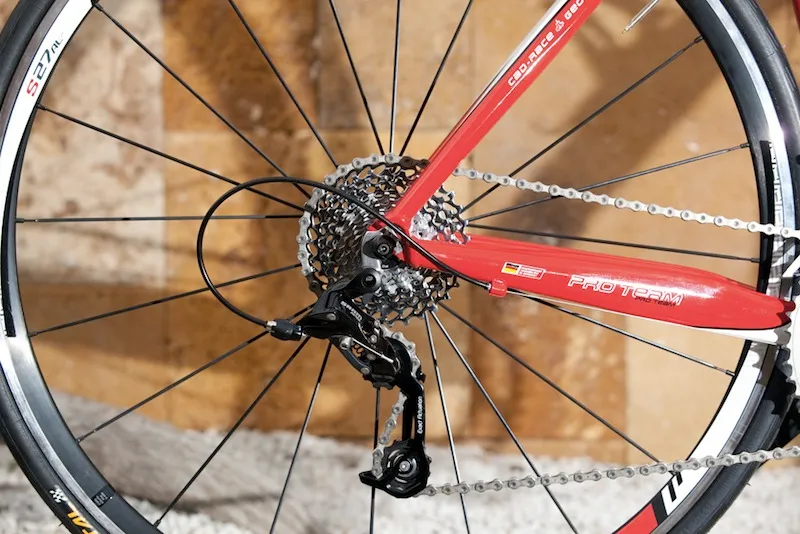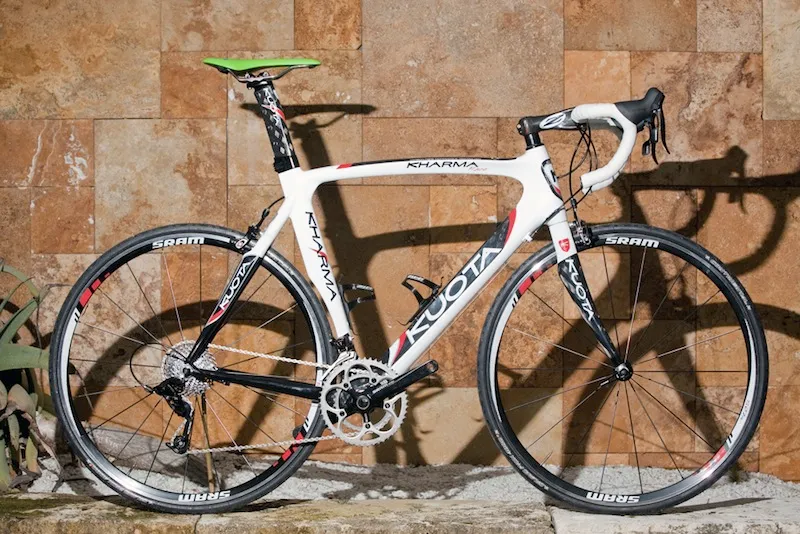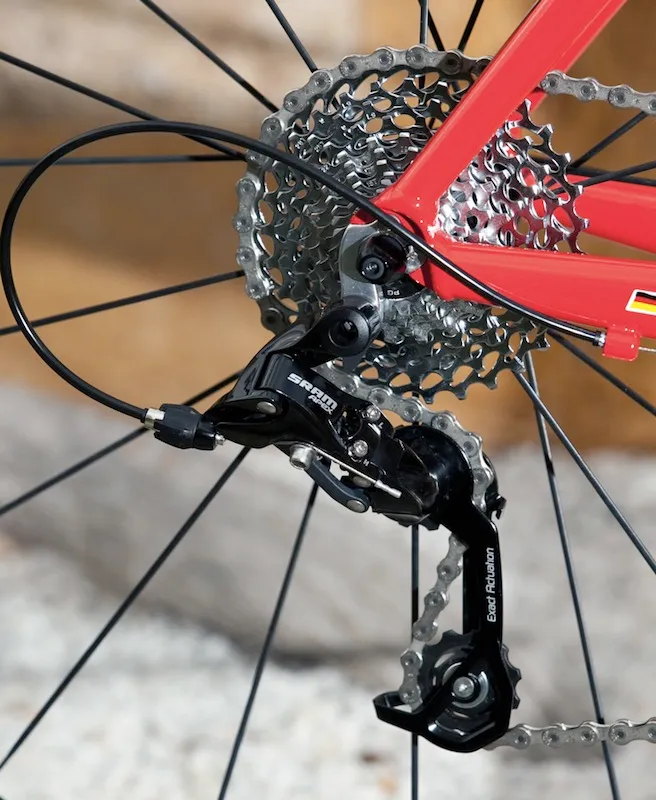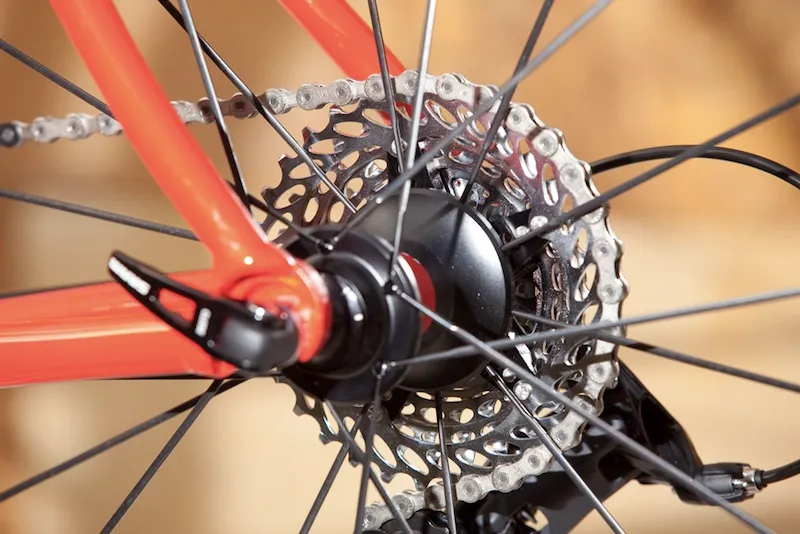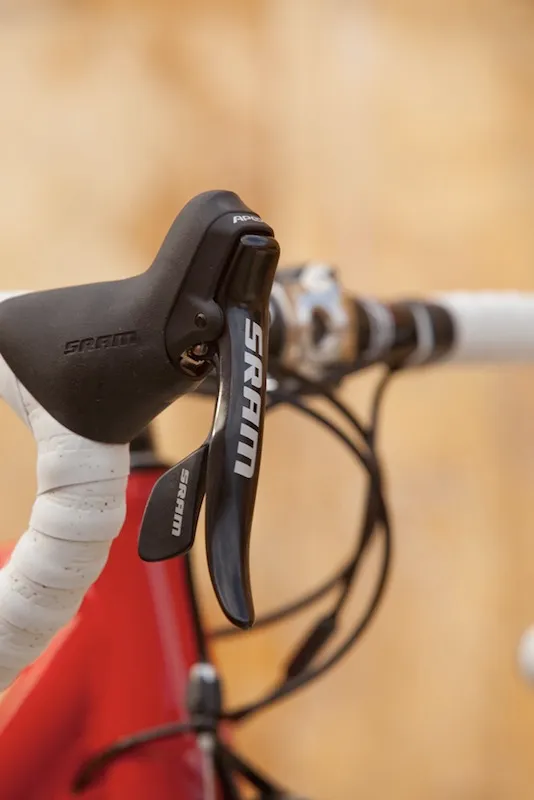Five years on from their first foray into the road market SRAM have added another arrow to their quiver with the official launch of the Apex groupset in Mallorca, Spain on Tuesday.
The entry level group slots in beneath the company's Red, Force and Rival groups, and while sharing most of the company's proprietary features will seek to capitalize on the ever increasing shift towards compact cranksets for novice and recreational cyclists.
Although SRAM already embraced compact technology in its existing offerings Apex's key feature is the option of a new 11-32 PG-1050 ten-speed cassette. A hybrid of the existing PG-1070 cassette and SRAM's off-road experience the new cassette will, when coupled with Apex's 50/34 crankset option (a standard 53/39 will also be available), offer a significant advantage over existing gear ratio options. The leap across such a wide range of gears is achieved by some rapid progressions at the lower end of the cassette (11-12-13-15-16-17-22-25-28-32). SRAM said that while the matter was addressed during Apex's research and development, the success of similar cassette options on their XX mountain bike component range was evidence the concept would work in the road arena.
SRAM makes no secret of the fact that it's a move designed to strike directly at the triple crankset's increasingly fragile existence within the entry-level marketplace. SRAM's marketing boffins have drawn Apex's under the marketing acronym 'WiFLi'. They contend that the wider gear range, faster and lighter set up of Apex's 50/34 and 11-32 combination will be enough to swing those that would previously erred towards the triple option. The lower Q-factor, less gear redundancy and claimed 274 gram weight advantage of the Apex compact over the Shimano 105 5603 triple has, as SRAM says, been rewarded with a number of production bike manufacturers already placing significant orders for the new group.
The PG-1050 will also be available in 11-23, 11-26 and 11-28 variants, with Apex users given mid- or short-cage rear derailleur options. PG-1070 cassette range will also add the 11-32 to its list of available options but will retain an aluminium lockring as opposed to the stainless steel option of the 1050 range.
Some things change, some stay the same
SRAM's existing road technology has flowed down to the newcomer. Apex's shifters feature the same Double Tap, Exact Actuation and Zero-Loss functionality of its elder siblings, as well as the Reach Adjust feature, which will accommodate smaller hands. While SRAM points out the benefits for those of smaller stature and women, growing junior riders could also be major benefactors of its inclusion. Apex will also offer a flat bar option, with the necessary shifters to go into production shortly and brake levers to follow soon after.
Physically, Apex closely resembles its predecessors and with a suggested price of US$799 SRAM hopes it will encourage those who want the look-and-feel factor without the financial cost to make the leap. Parts key to shifting performance such as lever internals and chainrings are identical in both Rival and Apex, to provide like-for-like function. However, Rival's carbon brake levers make way for Apex's aluminium equivalents. There's also less machining in components such as the forged dual-pivot brake calipers, which sees Apex give up some 225 grams to Rival, but the dollar/gram equation will create a natural division within the SRAM range.
With the aforementioned flat-bar options to become available and brake calipers capable of accommodating up to 28c tires, Apex will also seek to establish a foothold in the hybrid and commuter market.
The first Apex groups will be shipped to production bike manufacturers in April, with the group to become available to retailers in time for summer in the northern hemisphere.
Concept and technology straight from the ProTour
SRAM will sponsor a total of seven ProTour teams through the 2010 season (RadioShack, Saxo Bank, Astana, AG2r-La Mondiale, Cervélo TestTeam, Footon-Servetto and Milram), with the last four Tour de France winners now using the Red groupset (Lance Armstrong, Oscar Pereiro, Carlos Sastre and Alberto Contador).
At the launch of the Apex groupset in Mallorca, Spain on Tuesday, SRAM explained that the idea for the 11-32 cassette was born directly from Contador's triumph on stage 16 mountain time trial to KronPlatz at the 2008 Giro d'Italia, a result that helped secure his hold on the maglia rosa [italics].
The 12.9 kilometre climb on gravel roads with gradients up to 24 per cent saw SRAM technicians and Contador's mechanics work to build a custom cassette capable of offering the Spaniard a ratio as low as 34x30.
The tactic payed of handsomely as Contador finished fourth and gained time on his nearest rival and eventual second place getter, Riccardo Riccò.
Apex Specification (weights in brackets are claimed by SRAM)
- Shift/Brake levers: SRAM Apex Double Tap, double compatible only (344g per pair)
- Rear derailleur: SRAM Apex mid- or short-cage (SC - 200g, MC - 210g)
- Front derailleur: SRAM Apex Zero Loss, braze-on, 31.8mm clamp-on or 34.9mm clamp-on (BO - 89g, CO - 103g)
- Cassette: PG-1050, 11-32, 11-28, 11-26, 11-23 (11-32 - 299g)
- Brake calipers: SRAM Apex Skelotonized Dual Pivot (306g per pair)
- Crank set: SRAM Apex GXP 50/34 or 53/39 (890g - including GXP bottom bracket)
- Bottom bracket: SRAM Apex GXP
- Chain: SRAM Apex PG-1050
You can follow BikeRadar on Twitter at twitter.com/bikeradar.
